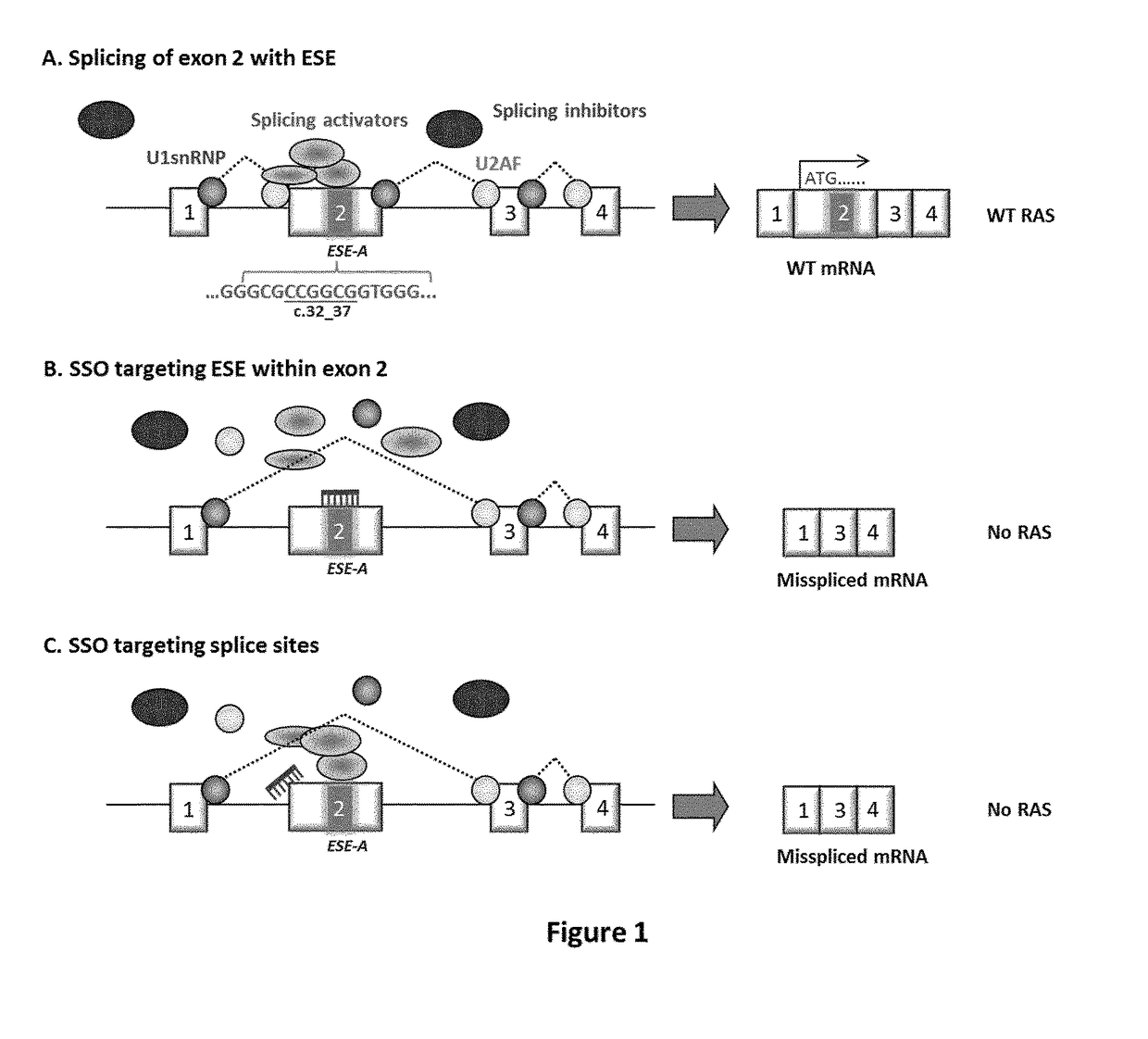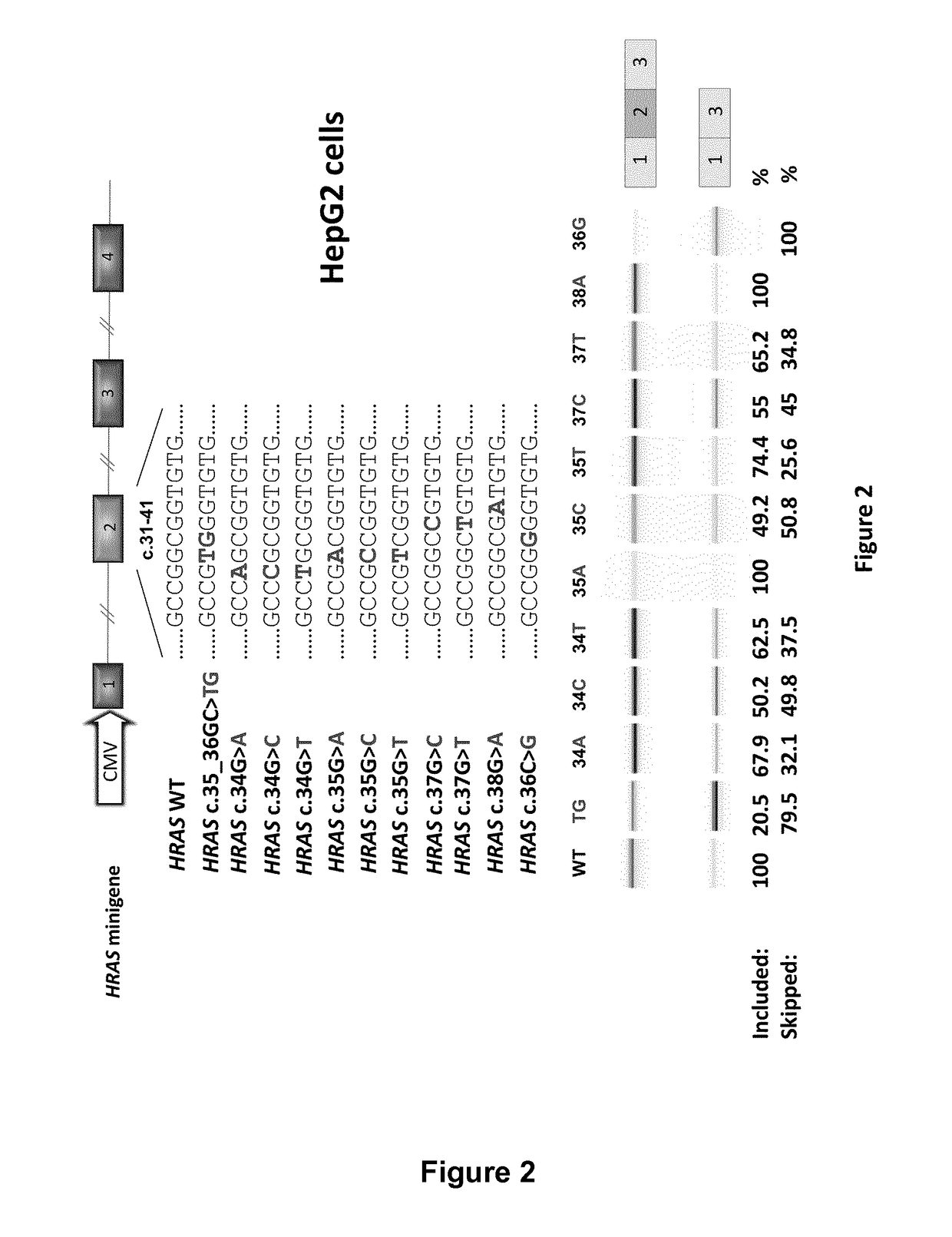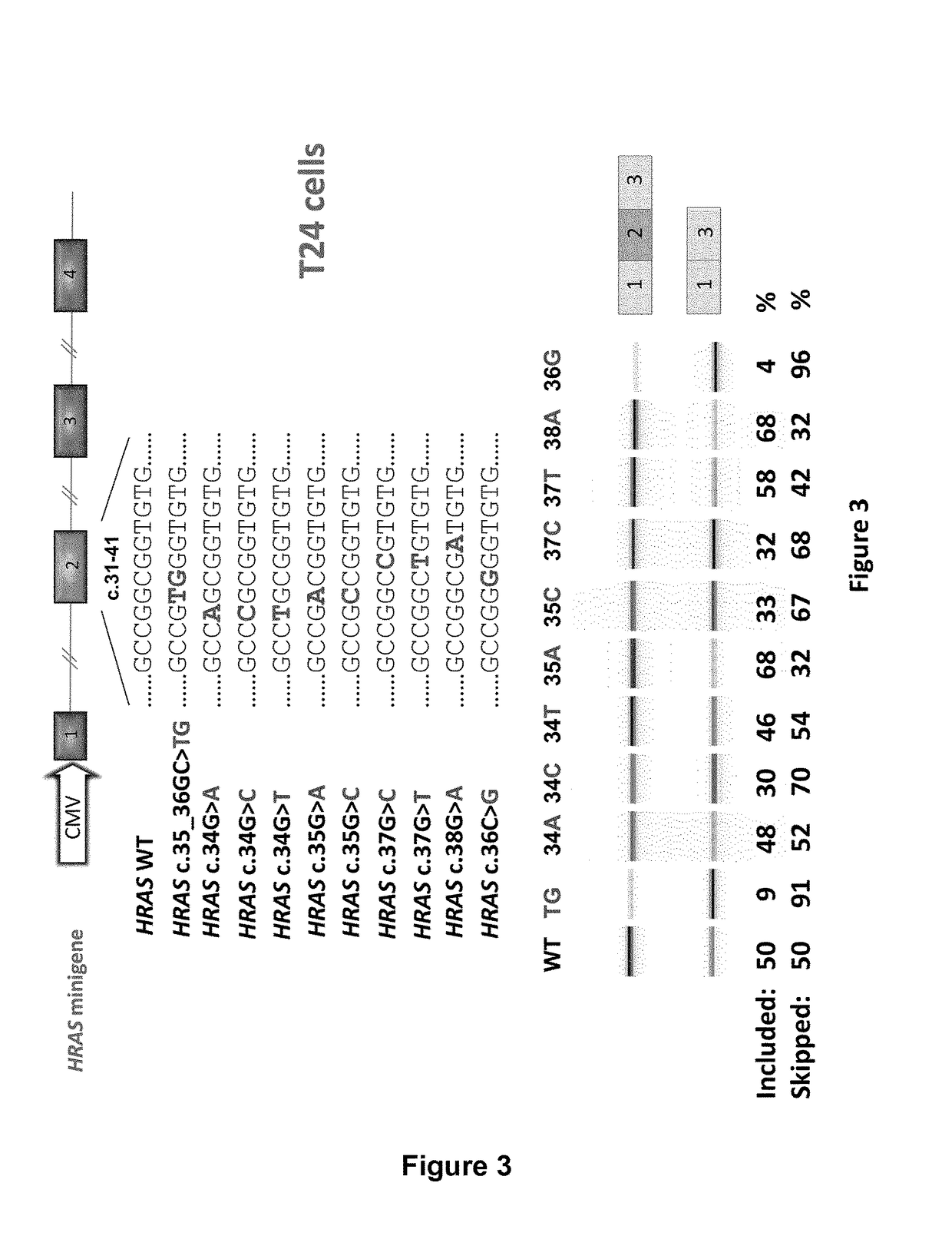Ras exon 2 skipping for cancer treatment
- Summary
- Abstract
- Description
- Claims
- Application Information
AI Technical Summary
Benefits of technology
Problems solved by technology
Method used
Image
Examples
embodiment 1
2. A SSO , wherein the SSO is complementary to at least one splicing regulatory site
3. A SSO according to any one of embodiments 1 or 2, wherein the SSO is complementary to at least one exonic splicing enhancer element (ESE) or a part thereof.
4. A SSO according to any one of the preceding embodiments, wherein the SSO is complementary to a sequence which comprises at least two ESE elements or a part thereof.
5. A SSO according to any one of embodiments 1 to 4, wherein the SSO is complementary to a sequence which comprises a splice donor or a splice acceptor site.
6. The SSO according to any one of the preceding embodiments, wherein (i) is 10 nucleobases, such as 11, such as 12, 13, 14, 15, 16, 17, 18, 19, 20, 21, 22, 23, 24, or 25 nucleobases.
7. The SSO of any one of the preceding embodiments, wherein (ii) is capable of binding a splicing inhibitory protein.
8. The SSO of any one of the preceding embodiments, wherein (ii) is capable of binding a splicing inhibitory protein from the hnRN...
embodiment 10
11. The SSO of embodiment 10, wherein (ii) is selected from the group of sequences consisting of SEQ ID NO: 33, SEQ ID NO: 35, SEQ ID NO: 37, SEQ ID NO: 39, and SEQ ID NO: 41
12. The SSO of any one of embodiments 1 to 9, wherein (ii) is positioned 5′ to (i) in said SSO.
embodiment 12
13. The SSO of embodiment 12, wherein (ii) is selected from the group of sequences consisting of SEQ ID NO: 32, SEQ ID NO: 34, SEQ ID NO: 36, SEQ ID NO: 38, and SEQ ID NO: 40.
14. The SSO according to any one of the preceding embodiments, wherein (i) comprises any one of SEQ ID NO: 2, 4, 5, 6, 7, 8, 9, or 10, or any one of SEQ ID NO: 56, 57, 58 or 59, or has no more than 1 or 2 mismatches or is at least 80% homologous to any one of SEQ ID NO: 1, 2, 3, 4, 5, 6, 7, 8, 9, or 10, or any one of SEQ ID NO: 56, 57, 58 or 59.
15. The SSO according to any one of the preceding embodiments, wherein (i) comprises any one of SEQ ID NO: 1, 3 or 11, or has no more than 1 or 2 mismatches or is at least 80% homologous to any one of SEQ ID NO: 1, 3 or 11.
16. The SSO according to any one of the preceding embodiments, wherein (i) comprises any one of SEQ ID NO: 21, 22, 19, 20, 63, 65, 72, 73, 75, 71, 66, 74, 68, 60, 61, 62, 64, 69, 67, 70, or has no more than 1 or 2 mismatches or is at least 80% homologo...
PUM
| Property | Measurement | Unit |
|---|---|---|
| Fraction | aaaaa | aaaaa |
| Inhibition | aaaaa | aaaaa |
Abstract
Description
Claims
Application Information
 Login to View More
Login to View More - R&D
- Intellectual Property
- Life Sciences
- Materials
- Tech Scout
- Unparalleled Data Quality
- Higher Quality Content
- 60% Fewer Hallucinations
Browse by: Latest US Patents, China's latest patents, Technical Efficacy Thesaurus, Application Domain, Technology Topic, Popular Technical Reports.
© 2025 PatSnap. All rights reserved.Legal|Privacy policy|Modern Slavery Act Transparency Statement|Sitemap|About US| Contact US: help@patsnap.com



